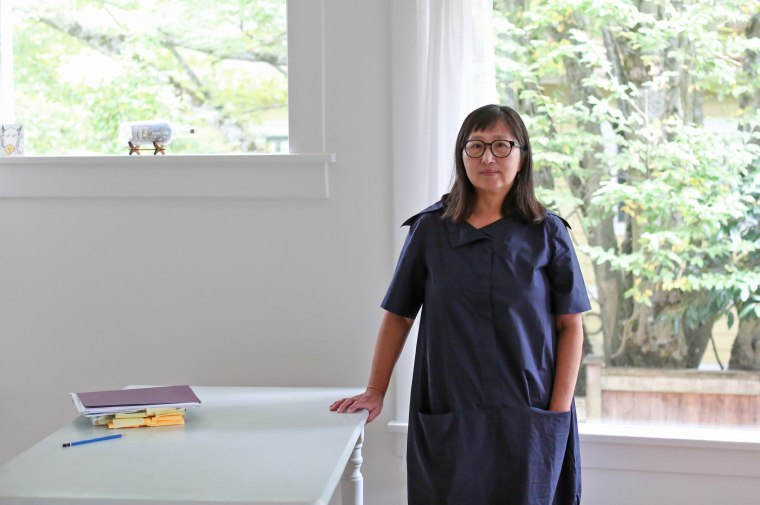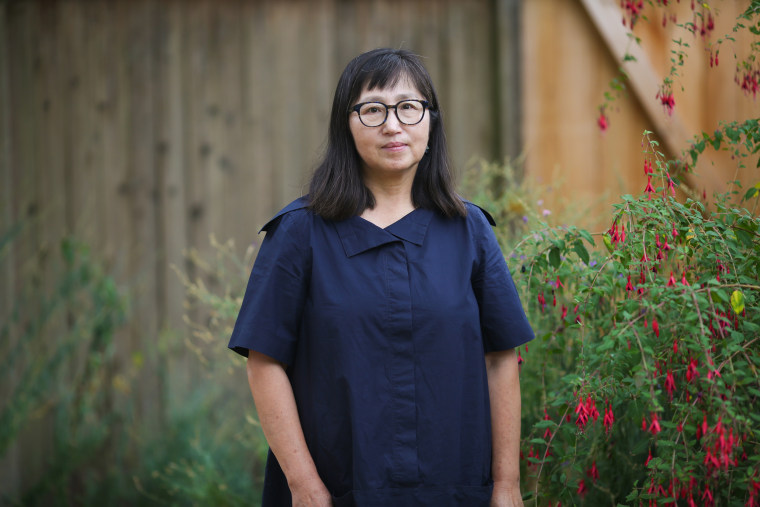Award-winning poet and translator Don Mee Choi was sitting in front of the computer in her closet-size writing room when she got a life-changing call from the MacArthur Foundation.
“The day before, the foundation had led me to believe that they were contacting me about an online translation panel,” she told NBC Asian America in an email. “So when my phone rang, I thought to myself, ‘Quick, think of a good excuse to say no!’”
Instead, Choi learned she had been named a 2021 MacArthur Fellow — news she’d have to keep secret for a couple of weeks until it was publicly announced Tuesday. The fellowship, commonly known as the “genius grant,” is a $625,000 no-strings-attached award that’s paid out over five years.
This year’s class of 25 fellows includes historian and author Ibram X. Kendi, digital media scholar Safiya Noble and computational virologist Trevor Bedford.
“I was in shock; I’ve never dreamed something like this would happen to me,” Choi, 59, said.
Anonymously nominated and evaluated, she was selected as a fellow for her creative work that bears “witness to the effects of military violence and U.S. imperialism on the civilians of the Korean Peninsula.”
“I will continue to explore and reflect on the neocolonial violence within the historical context of South Korea and U.S. relations,” Choi said. “I hope to address the massacre that took place in Gwangju during the most oppressive period of South Korea’s dictatorship.”
In her volumes of poetry, chapbooks and essays, Choi examines themes of dislocation, fractured identities, trauma and memory. She is known for amplifying the civilian voices that are often obscured by history and the looming threat of war in her homeland.
“I would like the readers to reflect on how our lives overlap and how we are tragically connected by imperial violence,” said Choi.
In her last two works — the 2020 National Book Award winner for poetry, “DMZ Colony,” and 2016’s “Hardly War” — Choi interspersed sections of text with typographic experiments, handwritten documents, maps, drawings and archival materials. She also incorporated photographs taken by her photojournalist father, who covered war zones and uprisings in Korea and Vietnam.

She most recently finished translating South Korean feminist poet Kim Hyesoon’s latest collection, “Phantom Pain Wings,” which will be published by New Directions in 2023.
Born in Seoul during the military dictatorship of Park Chung-hee, Choi arrived in the U.S. alone on a student visa in 1981, a year after the Gwangju massacre. Believing they wouldn’t be able to return to Korea, Choi’s family “separated and settled all over.”
On the plane from Hong Kong to Los Angeles, Choi said she cried nonstop. “I had with me a bag of paints, brushes and pencils,” she said. “Somehow the MacArthur news made me think of my first arrival to the U.S.”
Choi lived on campus at California Institute of the Arts in Valencia, California where she received a bachelor's in fine arts and a master's in fine arts. And 25 years ago, she drove to Seattle with her poodle, Anna, and her books.
“I just knew that I had to do my creative work, and I loved all the flowers and trees that reminded me of home in Seattle,” said Choi, who is an instructor in the college and career pathways program at Renton Technical College.
Teaching at the college’s off-campus community partnership site, Choi works with local organizations such as the YMCA and Goodwill, as well as shelters for the homeless in downtown Seattle.
“It has been rewarding to work with historically underrepresented and underprivileged students who are trying to pursue a better future for themselves and families despite their constant struggle against poverty, systemic racism and displacement,” she said.
Currently on sabbatical, Choi will be teaching in Germany as the Picador guest professor in literature at Leipzig University for a semester.
While abroad for a six-month period, Choi hopes she’ll be able to work on her next book, the third in a trilogy.
“[The fellowship] is an enormous gift, as well as recognition,” said Choi, who also received a 2021 Guggenheim Fellowship. “I think that I will be able to make more time to do my own creative work. It will also motivate me to keep taking risks with my work.”
CORRECTION (October 4, 2021, 1 p.m. ET): A previous version of this article misstated the name of the former South Korean president and military leader. He is Park Chung-hee, not Park Chung Lee.
